Gatwick Becomes First ‘Autism-Friendly’ Airport
 Last week, without too much fanfare, Gatwick Airport became the U.K.’s first designated “Autism Friendly” airport. The National Autistic Society is responsible for the presentation of the “Autism Friendly” award to restaurants, businesses, shopping centers, and more. Gatwick received the designation from the NAS, “in recognition of the airport’s commitment to becoming an accessible and friendly environment for autistic passengers.”
Last week, without too much fanfare, Gatwick Airport became the U.K.’s first designated “Autism Friendly” airport. The National Autistic Society is responsible for the presentation of the “Autism Friendly” award to restaurants, businesses, shopping centers, and more. Gatwick received the designation from the NAS, “in recognition of the airport’s commitment to becoming an accessible and friendly environment for autistic passengers.”
In order to earn the label, “Autism Friendly,” Gatwick had to meet a range of criteria that would benefit passengers with autism, along with their families and caregivers. This includes:
- Providing clear and accessible information about the airport to autistic passengers;
- Ensuring assistance is available for journey planning and preparation;
- Training staff so that they’re better equipped to properly assist autistic passengers;
- Introducing “Autism Champions,” who are trained to further educate and train airport employees, and to provide “enhanced assistance” to passengers who need it;
- Rolling out initiatives such as the hidden disability lanyard program.
The hidden disability lanyard was introduced this past May, and is an option available for any passenger with hidden challenges, including autism, Alzheimer’s, hearing impairment, and more. While wearing the lanyard is voluntary, those who do discreetly alert airport staff that they may (quoting from Gatwick’s press release):
- Need more time to process information or more time to prepare themselves at security;
- Need to remain with family at all times;
- May react to sensory overload (i.e., be surrounded by too much information);
- Need staff to use clear verbal language as it may be difficult to understand facial expressions and/or body language;
- Need staff to be visual with instructions and use closed questions to assist passengers effectively through the airport;
- Benefit from a more comprehensive briefing on what to expect as they travel through the airport.
As anybody who has travelled with a child with autism likely knows, it’s especially hard when you take a child out of their recognized routine and familiar environment and expose them to the chaos and unpredictability of an airport. Initiatives like this one and Myrtle Beach’s “sensory-friendly quiet room,” go a long way in making it easier for passengers and their families to travel. We look forward to hearing about more airports earning the “Autism Friendly” designation.



 Like other children with autism, 15-year-old Chase Bailey had some major food aversions when he was younger.
Like other children with autism, 15-year-old Chase Bailey had some major food aversions when he was younger. 
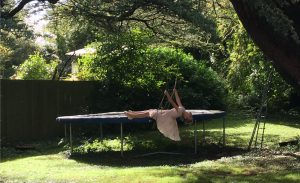
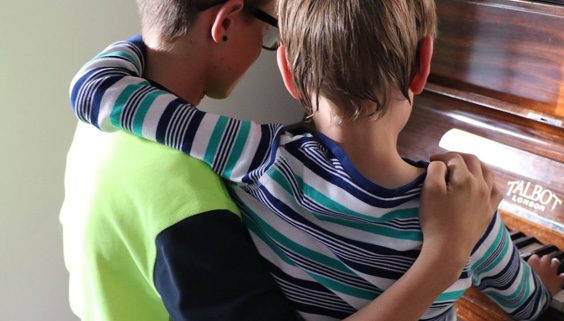
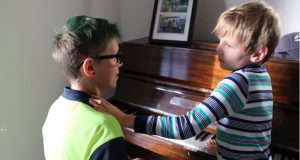 Our friends over at
Our friends over at 
 During the month of November, we are reminded about the importance of coming together and celebrating gratitude. In a few weeks, families and friends all over the U.S. will gather around tables full of food and take turns saying what they are thankful for. For families of children with special needs, it can sometimes be difficult to find anything to be grateful about. For me this is especially true. There have been times when I have scoffed (rolled my eyes) at the “Autism Is Awesome” memes on Facebook and grumbled in jealousy over my friends’ neurotypical kids’ achievements. For years I had no joy in my heart and was probably not a joy to be around.
During the month of November, we are reminded about the importance of coming together and celebrating gratitude. In a few weeks, families and friends all over the U.S. will gather around tables full of food and take turns saying what they are thankful for. For families of children with special needs, it can sometimes be difficult to find anything to be grateful about. For me this is especially true. There have been times when I have scoffed (rolled my eyes) at the “Autism Is Awesome” memes on Facebook and grumbled in jealousy over my friends’ neurotypical kids’ achievements. For years I had no joy in my heart and was probably not a joy to be around.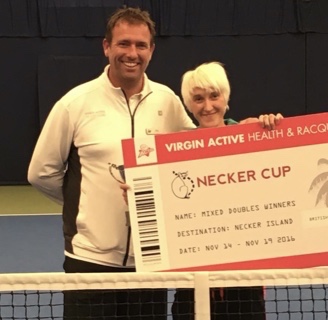
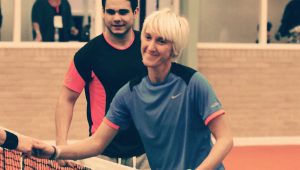 Becky Taylor, an autistic tennis player from the West Midlands, U.K., won the national
Becky Taylor, an autistic tennis player from the West Midlands, U.K., won the national 
 Let’s tackle Halloween in a fun way! I cannot even begin to count how many years Halloween has ended up like a real-life fright night in my house, as I try to get the kids ready for Halloween. I’d rather end up in a pumpkin smoothie than have to go through the rigamarole of taking my kids trick or treating. But it’s not as if we have a choice, is it? So get ready, we must!
Let’s tackle Halloween in a fun way! I cannot even begin to count how many years Halloween has ended up like a real-life fright night in my house, as I try to get the kids ready for Halloween. I’d rather end up in a pumpkin smoothie than have to go through the rigamarole of taking my kids trick or treating. But it’s not as if we have a choice, is it? So get ready, we must!
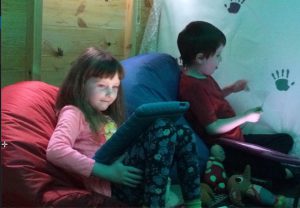 Most parents buy their children clothes, toys and other essential items, and use their garden space for barbecues, swings and kicking a ball about. However, I am an autism parent and that makes me think quite differently at times. Both of my children have significant sensory needs. My son has other complex medical needs and his twin sister has crippling anxiety. Helping them has become a matter of priority for me.
Most parents buy their children clothes, toys and other essential items, and use their garden space for barbecues, swings and kicking a ball about. However, I am an autism parent and that makes me think quite differently at times. Both of my children have significant sensory needs. My son has other complex medical needs and his twin sister has crippling anxiety. Helping them has become a matter of priority for me. I took the twins to some sensory rooms and watched to see what things they enjoyed best. I had our occupational therapist carry out a sensory assessment on them both and then suggest some equipment that might help them.
I took the twins to some sensory rooms and watched to see what things they enjoyed best. I had our occupational therapist carry out a sensory assessment on them both and then suggest some equipment that might help them.
 Jack is not your typical 11-year-old boy. His closet is jam-packed with dresses and tulle, his room is stacked with hats and wigs, and every surface is covered with makeup tins, face paint and books about goblins, witches, trolls and enchanted forests. Jack has high-functioning autism, and fairy tales and make-believe are a major part of the way he connects to the world. He is the subject of my short documentary, “Princess Jack,” exploring his special interest as he sews his first ballgown tailored for a debut at the royal ball.
Jack is not your typical 11-year-old boy. His closet is jam-packed with dresses and tulle, his room is stacked with hats and wigs, and every surface is covered with makeup tins, face paint and books about goblins, witches, trolls and enchanted forests. Jack has high-functioning autism, and fairy tales and make-believe are a major part of the way he connects to the world. He is the subject of my short documentary, “Princess Jack,” exploring his special interest as he sews his first ballgown tailored for a debut at the royal ball.
 Although many people these days complain about the selfishness of our youth, we read stories every day about children and teens going out of their way to help others. Such is this story out of Cedar Rapids, Iowa, where a high school cross country runner helped a runner from the other team cross the finish line.
Although many people these days complain about the selfishness of our youth, we read stories every day about children and teens going out of their way to help others. Such is this story out of Cedar Rapids, Iowa, where a high school cross country runner helped a runner from the other team cross the finish line.